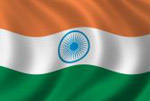 Wall Street Journal Europe: India is damned if it doesn’t enforce sanctions on Iran and disadvantaged if it does.
Wall Street Journal Europe: India is damned if it doesn’t enforce sanctions on Iran and disadvantaged if it does.
The Wall Street Journal Europe
India is damned if it doesn’t enforce sanctions on Iran and disadvantaged if it does.
Opinion
By HARSH V. PANT
 In the wake of the International Atomic Energy Agency’s recent report raising fresh concerns about Iran’s nuclear capabilities, American allies from France to Japan have added their voices to the chorus asking Tehran to come clean. Not India, which not only supported a strongly worded statement from the 118-member Nonaligned Movement criticizing the report but also moved to exempt one of its joint shipping ventures in Iran from the latest round of United Nations sanctions.
In the wake of the International Atomic Energy Agency’s recent report raising fresh concerns about Iran’s nuclear capabilities, American allies from France to Japan have added their voices to the chorus asking Tehran to come clean. Not India, which not only supported a strongly worded statement from the 118-member Nonaligned Movement criticizing the report but also moved to exempt one of its joint shipping ventures in Iran from the latest round of United Nations sanctions.
Iran has long been a litmus test that India has had to pass to satisfy American policy makers. New Delhi’s bond with Tehran has been termed variously by analysts as an “axis,” a “strategic partnership” and even an “alliance.” This level of scrutiny has always been disproportionate to the reality of the relationship. When in the past India had to choose between Iran and the United States, it always sided with the latter. But the shifting strategic landscape may be forcing New Delhi to rethink its approach.
The latest exemption is not India’s first move to secure its Iranian interests against the broader international clampdown. New Delhi recently signed an air-services agreement with Iran enhancing the number of flights between the two nations and allowing each other’s airlines to operate to additional destinations. The two sides also inked a memorandum of understanding that is aimed at increasing bilateral trade to $30 billion from $15 billion. Plans are afoot for greater maritime cooperation, and Iran has already joined the Indian navy’s annual initiative, the Indian Ocean Naval Symposium, which provides a forum for the navies of the Indian Ocean littoral states to engage each other.
More significantly, the two nations have decided to hold “structured and regular consultations” on Afghanistan. In the second trip to India by an Iranian minister in less than a month, Iran’s deputy foreign minister visited India last month to coordinate the two countries’ strategies. By deciding to provide a withdrawal timetable from Afghanistan, the Obama administration has unwittingly signaled to the Pakistani military that, as the U.S. reduces its presence in the war-scarred country, Islamabad is in a position to shape Afghanistan toward its own ends. Both India and Iran are, however, unlikely to accept an Afghanistan that serves as a springboard for the Pakistan military’s interests. Their closer collaboration on Afghanistan would take that nation back to the early 1990s, when different regional powers pursued their own narrow agendas, taking Afghanistan to the brink of ruin.
On Iran’s nuclear aspirations too, India has made subtle changes in its approach. Prime Minister Manmohan Singh has voted repeatedly in favor of IAEA resolutions condemning the Iranian program. Yet his government has been keen in recent months to emphasize that dialogue and diplomacy are its preferred means of defusing nuclear tension. India has expressed particular disapproval of sanctions by individual countries that restrict other countries’ investments in Iran’s energy sector. Despite existing sanctions, New Delhi is encouraging Indian companies to invest in Iranian energy so that economic connections can underpin a political realignment, not foreclose it.
The most significant disruption to this harmonious relationship has come in the form of China, which is now Iran’s largest trading partner. China has invested massively in Iran, with more than 100 Chinese companies on the ground and seeking to occupy the space vacated by Western firms that have grown skittish about mounting international pressure on the country. The partnership with China benefits both sides: Iran evades global isolation by courting China, which in turn gains access without any real competition to Iran’s energy resources.
India has always enforced dutifully any U.N. measures against Iran, often to the detriment of its energy investments in the country. Yet China, which as a member the Security Council helps shape U.N. policy toward Iran, has been able to sustain its own energy business in the country without much trouble; Iran was the third-largest exporter of crude oil to China last year, accounting for about 11% of China’s total crude imports. So India is right to feel restless about its marginalization within Iran, which has occurred despite strong cultural bonds connecting the two nations. Mr. Singh has now indicated that he will resume negotiations for India to import natural gas from Iran independently, via a seaboard pipeline.
India is trying to strike a balance between preserving its strategic interests and adhering to its global obligations. Its ability to maneuver in Tehran will remain limited so long as Iran does not find a workable solution with the West on its atomic ambitions. Faced with the region’s changing strategic milieu, though, New Delhi has found it necessary to keep all its options open.
Mr. Pant is a professor of defense studies at King’s College London.


